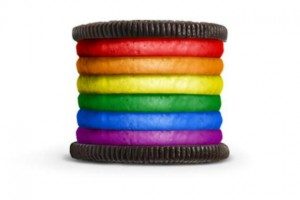 I know that I’ve been talking a lot about Chick-Fil-A recently and I don’t want to overdue it, but I recently got interviewed by a colleague of mine, Carlos Victor, on the topic of both Chick-Fil-A and the Oreo controversy of recent. Carlos’ questions were so different and well thought-out that I felt the need to share my interview with you!
I know that I’ve been talking a lot about Chick-Fil-A recently and I don’t want to overdue it, but I recently got interviewed by a colleague of mine, Carlos Victor, on the topic of both Chick-Fil-A and the Oreo controversy of recent. Carlos’ questions were so different and well thought-out that I felt the need to share my interview with you!
A little about Carlos
Carlos Victor Costa is a corporate communications executive with a 20 year career with companies such as Praxair, Petrobras and Dell in Brazil. Currently he lives in Madrid, Spain where he is the general manager of CVComunicar Consultancy and a professor of Online Reputation Management. He writes a blog at www.carlosvictorcosta.com, on crisis and online reputation management.
For those of you who would prefer to read this interview in Spanish, be sure to check out Carlos’ version over on his blog!
My interview with Carlos
Q: What’s your view on well established brands like Oreo and Chick-Fil-A taking a stand on controversial subjects such as gay marriage?
Normally, I would advise brands to stay away from both political and controversial subjects, such as their stand on gay marriage, because no matter what, doing so always results in the alienation of a portion of their audience/market.
In the cases of Chick-Fil-A and Oreo, I have two separate points of views:
Dan Cathy, president of Chick-Fil-A, made a decision to answer a question truthfully that was asked by a reporter for a Christian publication. Though Chick-Fil-A has always been open and honest about their religious beliefs, I doubt that Cathy had foreseen the response Chick-Fil-A instantly saw, as a result of his honesty.
As for Oreo, they made a well thought-out marketing decision. This decision was contemplated and the results were anticipated and planned for. Oreo knew what they were doing and decided to make their stand with a clear goal and realistic expectations before they set their campaign live.
Q: Can you evaluate/compare both companies’ management on their followers’ reaction?
Though different situations, both companies did a magnificent job at handling the response of the public.
Oreo, as their statement was planned for in advance, had a contingency plan to say nothing, permit the discussion to take place on their platform and to let the image they released speak for itself. They managed this beautifully, and though they did alienate a portion of their market, they did so consciously and willingly.
Chick-Fil-A, having been thrown into the midst of a viral attack, did a great job at responding to the rumors/comments/allegations that were circulating the web, as well as released a statement explaining to their audience that, though their religious views are what they are, they do not discriminate against customers and they serve/treat all of their customers equally. They also allowed for the conversation to take place on their platform which was a wise decision that allowed for their loyal customers and advocates to come to their defense – which helped them immensely when it came to turning the entire crisis around.
Q: What would you recommend that companies who want to voice their views on social issues do in social media? Do you think they should use their main social media platforms or create more specific niche-like communications (like a different Twitter account)?
My best advice for companies who wish to voice their political or social views, is to do so strategically. Weigh out the pros and cons and have a clear understanding of the consequences that may stem from such statements. This is best done with a thorough vulnerability audit (risk assessment) and should be completed with a social media crisis communications plan.
As for releasing such statements on your own platform or creating a new platform that is more targeted and niche, it depends on the particular situation. Though don’t be mistaken. Just because you make your views public on a specific niche platform, doesn’t mean that you won’t still find yourself caught in a viral online attack. In the case of Chick-Fil-A, Dan Cathy made his views public to a Christian-based publication with an audience who surely shares his same views and opinions, but that didn’t make one little difference in the outcome of the situation. Nothing stays buried on the internet and everything is share-able in mere seconds.

Author of Crisis Ready: Building an Invincible Brand in an Uncertain World, Melissa Agnes is a leading authority on crisis preparedness, reputation management, and brand protection. Agnes is a coveted keynote speaker, commentator, and advisor to some of today’s leading organizations faced with the greatest risks. Learn more about Melissa and her work here.

Leave a Reply